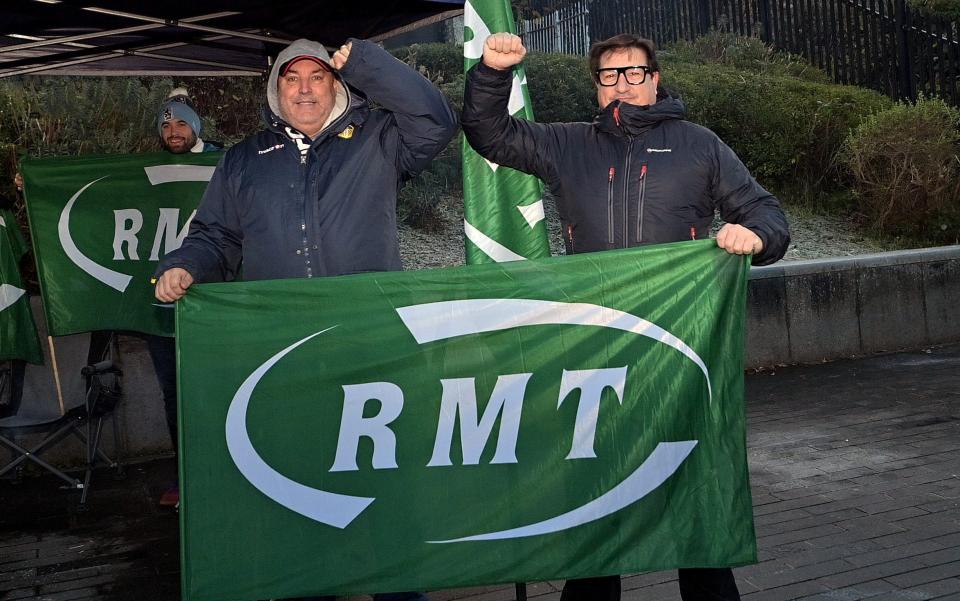RMT makes millions from hedge funds, oil companies and drugs giants

The trade union bringing the railways to a standstill has made millions of pounds investing in hedge funds, oil companies and drugs giants, according to delayed financial filings.
Coffers at the Rail, Maritime and Transport workers union (RMT) swelled by £6.1m after investing in the types of companies that union leaders have denounced in the past.
Mick Lynch, the RMT’s general secretary, total pay packet was £124,271 for the year, though he agreed to cut his salary to £84,000.
It came as a Freedom of Information request revealed that 250 signallers and track engineers, who are represented by the RMT union, earn at least £100,000 a year.
The figures, which were first reported by the Daily Mail, also showed that a further 650 Network Rail workers earned more than £80,000, while a quarter of track maintenance staff are on £60,000-plus.
Investments within the RMT’s portfolio include BP, NatWest and AstraZeneca, filings reveal. The union also handed a six-figure sum to Man Group, the listed hedge fund manager, to invest on its behalf.
It put money into a fund run by Ruffer, the investment management firm co-founded by Robert Shirley, the late 14th Earl Ferrers then Viscount Tamworth, who was deputy leader of the House of Lords under Margaret Thatcher in the 1980s.
The RMT has previously attacked “greedy multinationals” such as French cleaning company Atalian Servest for paying out large dividends to investors.
Mick Lynch, the RMT’s general secretary, has criticised train operators over “a culture of massive dividend payments and corporate greed”.
The RMT itself received more than £600,000 in dividends during the year, the accounts disclosed. Meanwhile, the union’s pension fund made a £9.6m gain as a series of shrewd investments wiped out its deficit.
The RMT accounts for 2021, filed with the Government more than five months late, also disclose that the union spent £1m during the year on “publicity and propaganda”.
Mr Lynch and the RMT have been at the centre of a wave of industrial action on the railways this year in a dispute over pay and conditions for its members. The latest 48-hour walkout began on Friday with members of the Transport Salaried Staffs' Association (TSSA) that work at train companies joining the RMT on the picket line on Saturday.
The RMT held 121 ballots for industrial action last year, accounts show – equivalent to one almost every three days.
A spokesman for the union said: “Mick Lynch’s salary is £84,000. This was decided by the union’s AGM and represented a 20pc pay cut at the time.
“The figure of £124,000 often quoted includes elements such as pension and National Insurance contributions which are not part of his income or pay. All national officers' pay is decided by RMT members, and three national officers last year froze their pay.
“All our investments are transparent and subject to rigorous democratic oversight, all with the aim of benefiting our members. The numbers you quote pale into insignificance next to £500m profits made by the private rail industry last year and the £300m indemnification that government will have provided to the train operators after 16 days of strike action across the rail network by RMT.”

 Yahoo Finance
Yahoo Finance 